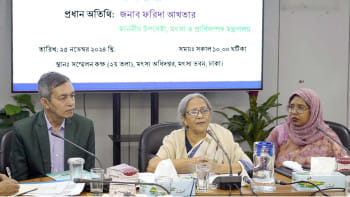GP retrenches 159 employees

Grameenphone retrenched 159 employees on Sunday after they refused to accept its voluntary retirement scheme (VRS).
One hundred employees left Grameenphone in 2020 when the carrier urged its redundant employees to leave the organisation under the scheme.
The operator revived the scheme on June 3 this year and asked the employees to inform it by June 17 whether they wanted to accept the offer.
One hundred employees showed interest this time as well. But an additional 159 employees lost jobs after the operator sent the "notice of retrenchment" to them on June 20 with immediate effect.
The Daily Star obtained some of the notices issued by Grameenphone.
In one of the letters, GP said in the view of the ever-changing dynamics of the needs of customers and service delivery modalities, the retail functions of Grameenphone had been restructured, making the operations of Grameenphone centre functions redundant.
In a statement, Grameenphone said it retrenched redundant employees who had no role in the organisation for more than 13 months.
The current VRS scheme of GP offers financial safety covers up to 100 months basic salary, subject to employees' job tenure and rank, and a two-year coverage of health and life insurance for the family.
"Grameenphone paid us salaries for each month although we had been out of work for the last one year. The operator preferred obtaining services from third parties for the tasks we were supposed to do," said one of the retrenched employees of a Grameenphone Centre.
He said he received the retrenchment notice through e-mails at the end of the office hour on Sunday.
"Grameenphone did not deploy us as part of its effort to cut operational costs. It gave us the feeling that we are no longer required. Although accepting VRS was optional, it was somehow a compulsory retirement," he said.
"We filed a case against Grameenphone in February this year as the operator kept 185 of its employees out of work for more than a year," said Mia Md Shafiqur Rahman Masud, general secretary of the Grameenphone Employees Union.
The issue of the industrial dispute is now pending in the High Court. The hearing of the case was supposed to take place tomorrow, he said.
"Under the circumstances, laying off workers is tantamount to disrespecting the High Court. It is illegal. Now we will take the matter to court and raise our voice nationally and internationally," Masud said.
However, Grameenphone said in a statement that a writ petition was filed before the High Court Division involving issues related to GPEU being a CBA or not and existence of any industrial dispute before Department of Labour.
"We are already an established CBA in GP. So we have raised the above mentioned industrial dispute on 180 job description less employees by GP to conciliator (labour department)," said Masud of GPEU.
"After their rejection, we filed a writ petition in the High Court against the rejection letter of the Conciliator."
Md Hasan, head of external communications at Grameenphone, said GP cared for its employees and for those who intended to pursue opportunities elsewhere.
The company has established a skills and development centre to assist those who want to opt for an outside career, he said, adding that GP strictly maintained employment terms and conditions following the applicable laws of the land.
Grameenphone began its journey on March 26 in 1997, and started laying off workers in 2012 through golden handshakes.
In 2012, the operator had 5,500 employees, of whom 4,500 were permanent. It got rid of 162 employees that year.
The lay-off continued in 2013 and 2014, but the flow slowed amid protests by its employees.
In 2015, the company introduced the scheme with better benefits than that of 2012's and kept dismissing workers every year since then.
At the beginning of 2021, the operator had 2,100 employees. It has come down to 1,841 now after 100 accepted the VRS, and 159 were retrenched.



 For all latest news, follow The Daily Star's Google News channel.
For all latest news, follow The Daily Star's Google News channel. 



Comments